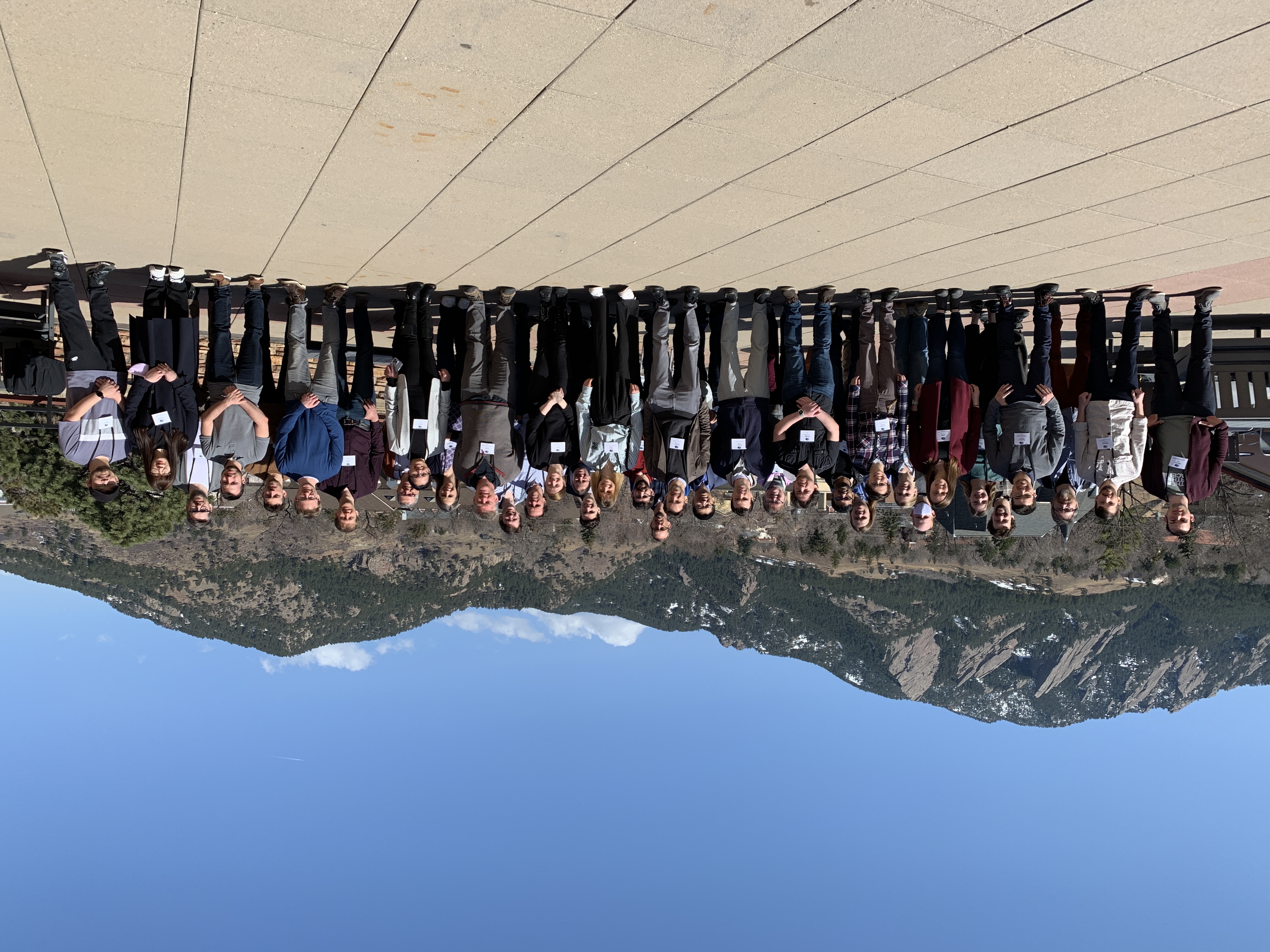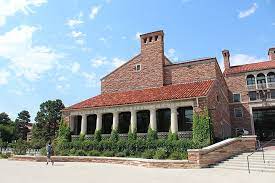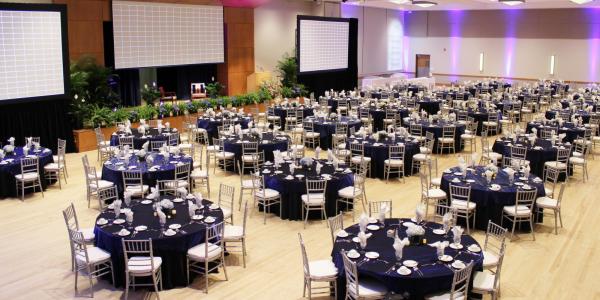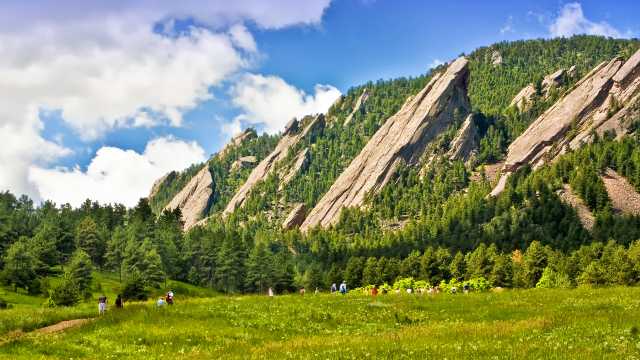Topics
Machine Learning in Heliophysics
Thank you all for a very successful conference!
Presentations are available for download

Methods
Machine and Deep Learning System identification Information theory Combination of physics-based and data-driven modeling Bayesian analysis
Welcome to the 2022 ML-Helio Conference! This year we are offering the conference in a hybrid format. All of the technical sessions will be live on Zoom as interactive meetings, not webinars. Virtual participants will be seen and heard in the meeting space and will be able to interact in real-time with the in-person attendees. Our conference management platform is Whova . This will provide all attendees with an easy-to-navigate schedule of events, with embedded Zoom links and access to the technical session recordings at the end of each day. Whova offers value to both virtual and in-person attendees and is available as an app or through a browser. We will send more information about Whova and how to use it as we get closer to the conference. Your paid registration will grant you access to both Whova and our conference-specific Slack channel. If you have any questions or comments, please email us at mlhelio2022@gmail.com. We're looking forward to seeing you, in-person or virtually!
The goal of the ML- Helio conference is to leverage the advancements happening in disciplines such as machine learning, deep learning, statistical analysis, system identification, and information theory, in order to address long-standing questions and enable a higher scientific return on the wealth of available heliospheric data.
We aim at bringing together a cross-disciplinary research community: physicists in solar, heliospheric, magnetospheric, and aeronomy fields as well as computer and data scientists. ML- Helio will focus on the development of data science techniques needed to tackle fundamental problems in space weather forecasting, inverse estimation of physical parameters, automatic event identification, feature detection and tracking, times series analysis of dynamical systems, combination of physics-based models with machine learning techniques, surrogate models and uncertainty quantification.
The conference will consists of classic-style lectures, complemented by hands-on tutorials on Python tools and data resources available to the heliophysics machine learning community.
The conference will be hosted in hybrid mode (in-person and virtual).
We expect all the participants of Machine Learning in Heliophysics to follow our Code of Conduct.
COVID update: The conference organizers request that only fully vaccinated people (as defined by CDC guidelines ) or otherwise holding a valid medical exemption attend the conference in person. Attendees are expected to follow all CDC, state of Colorado, and CU Boulder public health orders, guidelines and policies in place at the time of the conference.
Invited Speakers
Rafal Angryk (Georgia State University) Gary Doran (JPL) Maria Elena Innocenti (Ruhr Universiteit Bochum) Jay Johnson (Andrews University) Alan Kaptanoglu (University of Washington) Maria Molina (NCAR, National Center for Atmospheric Research) Andres Munoz-Jaramillo (Southwest Research Institute) Katariina Nykyri (Embry–Riddle Aeronautical University) Eunsu Park (Kyung Hee University) Maziar Raissi (University of Colorado)Program
The preliminary program can be downloaded here
Back to the top
15 January 2022: Abstract submission deadline (link)
15 January 2022: Deadline to apply for travel support
28 February 2022: Early bird registration
7 March 2022: Late abstract submission deadline -- Poster only -- (link)
7 March 2022: In-person registration closes
21 - 25 March 2022: Conference
31 December 2022: Paper submission for AGU Special Collection
Back to the top
Registration for virtual participants is still open! Click here for registration
Registration fees:
Student (in-person): $450 (before March 1st) -- $550 (March 1st to March 7th)
Regular (in-person): $600 (before March 1st) -- $700 (March 1st to March 7th)
Student (virtual): $300 (before March 1st) -- $400 (March 1st to March 7th)
Regular (virtual): $450 (before March 1st) -- $550 (March 1st to March 7th)
The registration fee includes an opening reception and lunches from Monday to Friday.
Invitation letter: In case you need an invitation letter, you can make a request to enrico.camporeale@noaa.gov. Note that invitation letters can only be issued for registered participants.
Abstract submission is available on this link
Changes
If you need to make any changes to your registration information, add or remove optional items, or change your registration package from in-person to virtual or vice versa, you can do so by clicking the “Already Registered?” button at the top right corner of this page.
Please note that when you change your registration package from in-person to virtual or vice versa, your original payment will be completely refunded and you must submit a new payment in order to confirm the change. You will be charged for the new registration package based on what the current registration rate is at that time.
You can make modifications to your own registration up until March 7, 2022. After that date you must email conferences@colorado.edu for assistance with making any changes.
Travel grants
Eligibility: in order to be considered for a travel grant you must be: 1) a student or 2) have graduated not earlier than 21 March 2019. You also need to have submitted an abstract (submit here)
We have a small number of travel grants. Please apply only if a travel grant is strictly necessary for your attendance to the conference.
Submit your travel grant application here
IMPORTANT: Despite the unprecedented level of uncertainty, we are trying to set up a registration fee that would make the conference accessible for everybody. It would help us tremendously to have an estimate of how many people are planning to attend.
If you plan to attend, please fill this anonymous survey here (do it only once!)
PLEASE NOTE: As per the laws of the state of Colorado and the policies of the University of Colorado Boulder, all registrant should hereby be aware that some portion of the registration fee will be used to purchase alcoholic beverages.
Back to the top
Call for Papers for "Machine Learning in Heliophysics” Open for Submissions: 1 April 2022 Submission Deadline: 31 December 2022 Papers can be submitted for consideration to any of the following AGU journal and collected under the 'Machine Learning in Heliophysics' Special Collection:
Back to the top
Scientific Organizing Committee
Abigail Azari (UC Berkeley) Hazel Bain (CU Boulder) Jacob Bortnik (UCLA) Enrico Camporeale (CU/NOAA, chair) Mark Cheung (LMSAL) Veronique Delouille (ROB) Farzad Kamalabadi (U. Illinois) Michael Kirk (ASTRA) Giovanni Lapenta (KU Leuven) Stefan Lotz (SANSA) Sophie Murray (Trinity College Dublin) Naoto Nishizuka (NICT, Japan) Pete Riley (Predictive Science Inc.) Simon Wing (APL, Johns Hopkins)
Local Organizing Committee
Linda Pendergrass Virginia Schultz Amy Martinez Curt Davis Colin Mahoney
Back to the top
The conference will be held at the University Memorial Center in Boulder, CO (USA)




On-Campus Parking Permits
Please use the CU Events Parking website link https://cuboulder.pmreserve.com/ to purchase a $20.00 permit for the conference. Select Sunday March 20 ML-Heliophysics Conference 2022 Find Parking link and complete the requested information (make, model, color, license plate) and make your payment. If you can’t print the permit, save the reply email as documentation. Make sure that you park on the lower levels of the Euclid Parking Garage designated as Lot 205 and not in the Pay-to-Park spaces.
Travel
The Denver International Airport is served by all major airlines. It is about 45 minutes from Boulder by car. A public bus service (RTD) is available. See here.
A number of hotel rooms has been blocked at a special group rate on first-come-first-served basis (available until February 18, 2022). Space is limited - please book early! The hotel list is available here
If you are interested in sponsoring ML-Helio 2022 you can download the sponsor prospectus here
Back to the top






